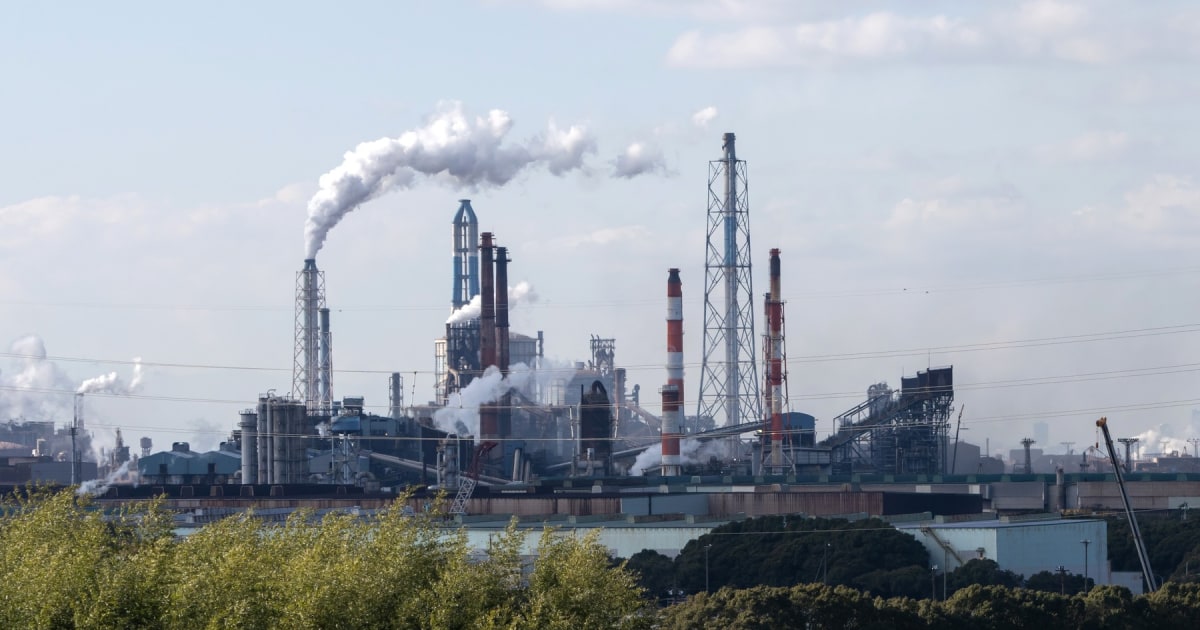New York
CNN
—
A massive port strike along the East and Gulf Coasts that kicked off on Tuesday has the potential to become one of America’s most disruptive work stoppages in recent times.
The demands of the nearly 50,000 members of the International Longshoremen’s Association walking the picket lines remain at odds with the contract offer from the United States Maritime Alliance, or USMX. USMX represents the major shipping lines, as well as terminal operators and port authorities.
“If we have to be out here a month or two months, this world will collapse,” said ILA President Harold Daggett in an interview with CNN Tuesday morning. “Go blame them (the USMX). Don’t blame me, blame them.”
The workers on strike have voiced real concerns about the future of their industry. The strikes, which have stopped the flow of a wide variety of goods at the docks of almost all cargo ports from Maine to Texas, also comes at a crucial time for US elections.
Here’s the latest information you need to know about the port strike.
You can sum up the strike issues in two words: Automation and wages.
Port employees perform grueling and crucial work. Dockworkers are rallying against a growing trend among port operators to increase the number of cranes and driverless trucks – which use fewer humans – to shuttle goods from container ships.
The longshoreman’s union is demanding “airtight” language that the ports won’t introduce automation “or semi-automation.” The USMX is offering to keep its current contract language, which the union says is not strong enough.
The ILA also wants a $5-an-hour increase in pay for each of the six years of the next contract, or a 77% hike in total. The USMX said Monday it had increased its offer to more than 50% over the proposed six-year contract.
Daggett said Tuesday that offer works out to an average increase of $3 an hour. He said while the union was considering the Biden administration’s suggestion of an average of a $4-an-hour increase before the strike, when the USMX responded with its offer of $3 an hour, the union moved back to its $5-an-hour demand.
Transportation Secretary Pete Buttigieg told CNN on air Thursday that he thinks there is a deal that can be reached to end the strike.
“We’ve been engaging the parties on all sides, urging them to come to the table and get to a deal,” he said. “We think that economically, they are not so far apart that that they can’t bridge these differences, especially when you consider this is a very, very profitable industry.”
As President Joe Biden and Vice President Kamala Harris have done in their recent statements, Buttigieg said it is right for the union to demand its fair share of record shipping profits in recent years. He pointed to billions of dollars ship lines have been spending on share repurchases to help shareholders and the billions in increased value of those companies’ market caps.
“That by my rough estimate is a multiple of the entire wages of the entire East Coast unionized work force collectively,” he said.
That depends on how long the strike will go on.
However, there are estimates. A one-week strike would cost the US economy about $2.1 billion, according to an estimate Monday from the Anderson Economic Group.
Most of that would be a $1.5 billion loss in the value of the goods that couldn’t be delivered on time, such as perishable goods. Transportation companies, including ship lines and ports, would lose $400 million in profits, while striking workers and those temporarily laid off would lose $200 million in wages.
No.
People are panic-buying toilet paper, reports on social media show, displaying empty store shelves where toilet paper and sometimes paper towels used to be.
But though people are likely harking back to the pandemic shutdown days, the strike at ports won’t have any impact on the supply of these products. That’s because the vast majority of US toilet paper comes from domestic factories. When it does come from abroad, it’s usually trucked in or travels over rail from Canada and Mexico.
If the strike drags on, you can expect some shortages on perishable items that the US imports.
One of those is bananas; the US imports 100% of its supply. More than half of banana imports, America’s most popular fruit by volume, comes in through the ports being struck as of Tuesday morning, according to the American Farm Bureau Federation.
Unlike toilet paper, bananas go bad, so shippers weren’t able to ship large volumes in advance of strikes.
Other items at risk: cherries, cocoa, sugar, imported wine, beer and hard liquor.
While the Biden administration has said it supports workers’ rights, a prolonged economic stoppage will almost certainly cause higher prices and potential supply chain back-ups weeks before Election Day.
President Joe Biden has already said he would not invoke the Taft-Hartley Act, which would force the longshore workers back to work.
“No,” Biden told reporters Sunday, when asked whether he would intervene in a potential strike. “Because it’s collective bargaining, and I don’t believe in Taft-Hartley.”
Vice President Kamala Harris, the Democratic presidential nominee, didn’t comment on the strike until Wednesday, saying in a statement that those on the picket lines “play a vital role transporting essential goods across America,” so they “deserve a fair share of these record profits.” Industry profits topped $400 billion from 2020 to 2023 as shipping rates soared during and after the pandemic.
She also called out former President Donald Trump’s record on labor, claiming he “appointed union busters to the NLRB” and recently said striking workers should be fired.
However, Trump claimed in a statement Tuesday that the strike happened “because of the inflation brought on by Kamala Harris’ two votes for massive, out-of-control spending,” likely referring to the American Rescue Plan and Inflation Reduction Act.
“American workers should be able to negotiate for better wages,” he continued.
On Wednesday, Biden starkly warned against the “man-made disaster” caused by the ongoing port strike and urged the two sides to come to an agreement to avoid significant economic impacts.
“Natural disasters are incredibly consequential. The last thing we need on top of that is a man-made disaster, what’s going on at the ports,” he told reporters at Joint Base Andrews.
He continued, “We’re getting pushback already – we’re hearing from the folks regionally – that they’re having trouble getting product they need because of the port strike.”
CNN’s Betsy Klein, Allison Morrow, Chris Isidore, Vanessa Yurkevich, Kayla Tausche, and Arlette Saenz contributed to this report.











